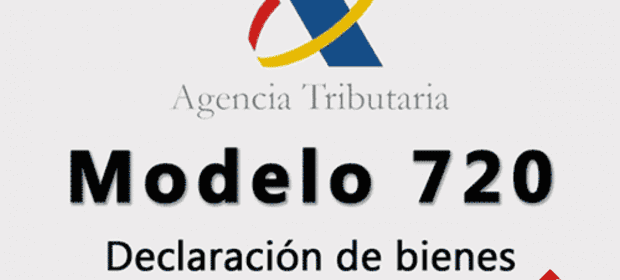When people move to Spain, they often expect challenges around property or residency, but one of the biggest surprises comes from the tax office. After settling in, most people become accustomed to the Spanish tax system; however, one common pitfall that British expats encounter is the requirement for a single tax reporting form, known as Modelo 720.
Modelo 720 Spanish Tax Form
By Jett Parker-Holland
This article is published on: 13th October 2025

Importantly, this is not a tax bill; it is a declaration, but failing to address it correctly can still result in hefty penalties and unnecessary stress.

The Modelo 720 is an annual information return that Spanish tax residents must file if they hold certain assets abroad worth more than €50,000 in any of three categories: bank accounts, investments, and property. Once filed, it does not need to be submitted again unless your foreign-held assets increase by more than €20,000, or your wealth in another category exceeds the €50,000 threshold. It aims to give the Spanish tax authorities a clear picture of your worldwide wealth.
Importantly, the form itself does not create a tax liability, but it can leave you open to scrutiny, which is where the risk lies. Failure to declare or even minor errors can lead to fines, backdated tax assessments, and interest charges. Once you’re on Hacienda’s radar, future scrutiny tends to increase, which is a headache nobody wants when settling into life in Spain.
Many expats worry that the cash and investments they have held in the UK may pose a potential issue with the Modelo 720, and that failing to declare in previous years may prevent them from doing so now. The good news is that by structuring your finances in advance, you can avoid this problem altogether. Certain Spanish-compliant investment bonds are not classed as foreign assets for Modelo 720 purposes, meaning you don’t need to declare them. For those anxious about declaring, this can be a great opportunity to structure your wealth so that it does not need to be declared, thereby avoiding ongoing scrutiny.
Beyond avoiding declaration, a bond allows for tax-deferred growth within the bond, meaning that your wealth can continue to collect interest and benefit from favourable tax treatment on withdrawals. Spanish-compliant bonds are not just about avoiding taxes or declarations; they are about ensuring compliance with Spanish regulations. For many of my clients, transferring assets into a compliant bond is the single most significant step they take to streamline their financial life in Spain.

Modelo 720 may seem like a minor formality, but mishandling it can turn into an expensive problem. By structuring your wealth effectively, you can reduce the risk of fines while also gaining ongoing tax efficiency and estate planning benefits. If you are already living in Spain or planning a move, now is a good time to review your arrangements.
A Spanish-compliant product is (almost) a prerequisite for an expat investor in Spain; it is the cleanest way to stay on the right side of Hacienda while keeping your money working hard for you.
As a Chartered Wealth Manager with a master’s degree in Investment Management, I specialise in helping British expats in Spain manage pensions, investments, and tax-efficient structures. With years of experience advising across both the UK and Spain, I focus on making cross-border finances simple, compliant, and effective for the long term.
If you would like a confidential review of your situation or would like to explore your options, please don’t hesitate to contact me. Proper planning today can save you a great deal of time, money, and stress tomorrow.
Webinar – Moving to Malaga, Spain
By Jett Parker-Holland
This article is published on: 5th September 2025

Join the Webinar
Moving to Malaga
23rd September 5pm UK | 18.00 CET

Dreaming of a new life in the sun?
Whether you’re just starting to explore or actively planning your move, join The Spectrum IFA Group and the expert partners for a free, live webinar designed to guide you every step of the way.
- Property insights from BluCee Real Estate
- Visa & residency guidance from Help at Hand Spain
- Currency exchange tips from Lumon
- The financial and tax planning for your move – Jett Parker-Holland, Spectrum IFA Malaga office
- How to choose the right health insurance with Sam Campbell Insurance
Are You Leaving 40% of Your Assets to the Taxman?
By Jett Parker-Holland
This article is published on: 22nd April 2025

Most people try to do the right thing. They work hard, save diligently, contribute to their pensions, and even invest in property to secure a comfortable retirement and leave something behind for their loved ones. It’s the responsible thing to do, but recent changes to the UK tax system have turned that logic on its head, especially for British expats living abroad or planning to retire in Spain.
As of April 2025, a new inheritance tax test will be introduced, replacing the ambiguous concept of domicile with a more definitive measure: residency. If you are living—or planning to live—in Spain for the long term, this change affects you directly. Under the new rules, if you have lived outside the UK for at least 10 of the last 20 years, you’ll be classified as a non-UK Long-Term Resident. This is important because it means your overseas assets will no longer be subject to UK Inheritance Tax (IHT); however, UK-based assets such as pensions, property, and bank accounts will still be taxed at 40%.
For many clients, much of their estate remains tied up in the UK. This includes UK property, bank accounts, and—most notably—UK pensions. Although yields on UK assets like rental property or fixed-term bank deposits can appear attractive, the long-term benefit may be diminished if 40% of the value is lost to IHT on death. Because of this, those planning to live in Spain for the long term may want to consider moving certain assets out of the UK tax system. It’s an area where careful financial planning can make a real difference.
The same applies to pensions. Under the old regime, UK pensions were exempt from IHT. Now, pensions are included as part of your estate. If you pass away after age 75, your beneficiaries could face a 40% IHT charge, and potentially up to another 45% in income tax when they take money out of the pension. It’s a harsh reality and fundamentally changes how we should value UK pensions. If your beneficiaries can’t access the full pot, it’s simply not as valuable as it once was. Under these conditions, a £400,000 pension could lose £160,000 to IHT alone.
At Spectrum, we specialise in cross-border financial planning. We can help you review your UK assets and explore options to reduce your exposure to unnecessary taxes, ensuring more of your hard-earned wealth stays with your family, not the taxman.
If you’re living in Spain, or planning to, and you’re unsure how these changes affect you, this may be a good time to review your plans. A short conversation could help secure your legacy.
If you would like to discuss your situation in more detail and explore your options, please feel free to contact me directly for a no-obligation consultation.


